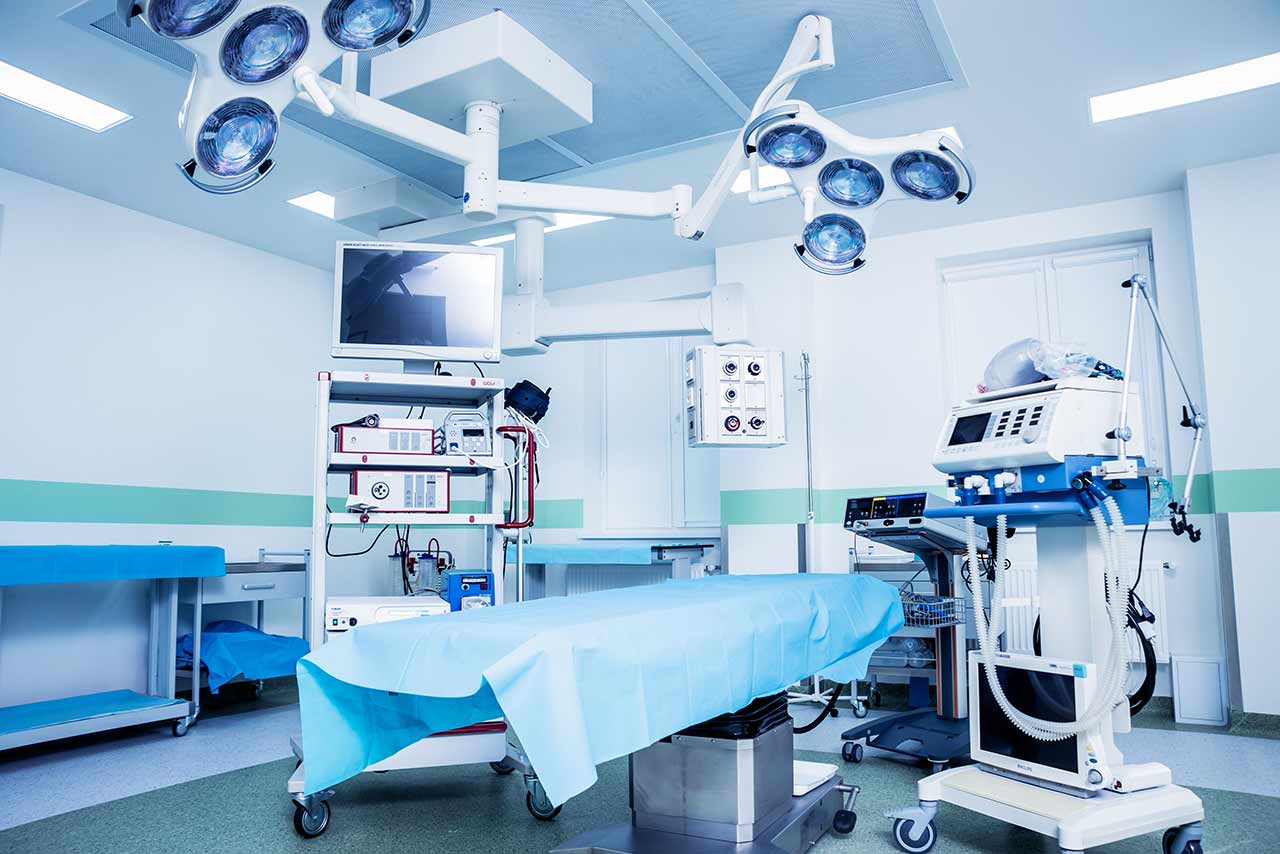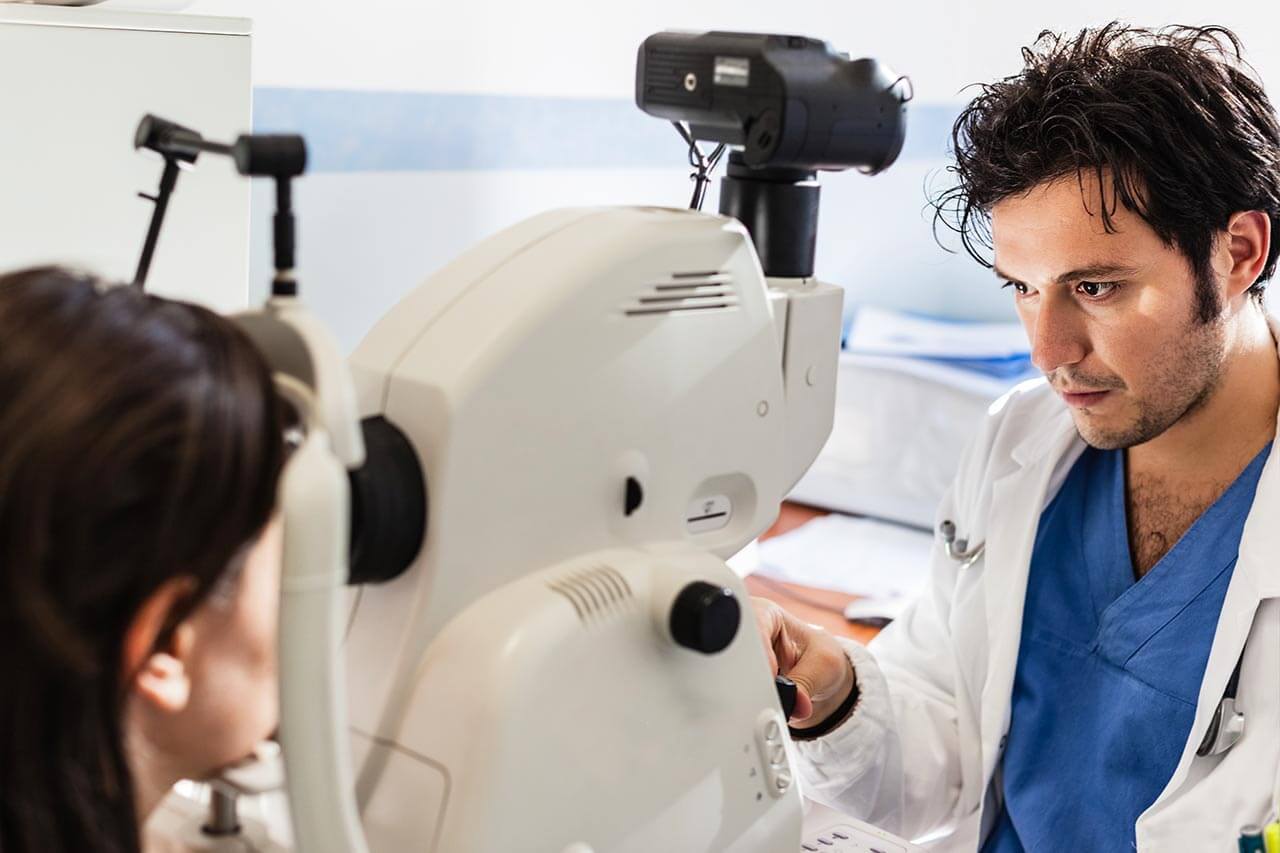
The program includes:
- Initial presentation in the clinic
- clinical history taking
- review of medical records
- physical examination
- laboratory tests:
- complete blood count
- biochemical analysis of blood
- inflammation indicators (CRP, ESR)
- indicators blood coagulation
- TSH-basal
- x-ray and bronchography
- electrocardiogram (ECG)
- general otolaryngological examination
- pulmonary function test
- blood gas analysis
- CPAP masks selection
- symptomatic treatment
- control examinations
- the cost of essential medicines and materials
- nursing services
- full hospital accommodation
- explanation of future recommendations
Required documents
- Medical records
Service
You may also book:
 BookingHealth Price from:
BookingHealth Price from:
About the department
The Department of Adult and Pediatric Otolaryngology, Head and Neck Surgery at the Memorial Ankara Hospital offers the highly accurate diagnostics and effective treatment of the full range of ENT diseases. The department also specializes in the complex treatment of benign and malignant head and neck tumors. The department employs a specially trained team of pediatric doctors for providing medical care to young patients with otolaryngological diseases. Since the key to the effective treatment is high-quality diagnostics, the department has at its disposal well-equipped diagnostic rooms for otoscopy, rhinoscopy, laryngoscopy, audiometry, electronystagmography and other examinations. The optimal treatment regimen is appointed to the patient depending on the particular clinical case. The department's ENT doctors quite often have to resort to the surgical treatment, and therefore the department has high-tech operating rooms for sparing endoscopic and microsurgical interventions. Such operations are an internationally recognized standard in otolaryngology – classical open surgery is rarely used. In addition, the department has a pleasant and friendly atmosphere, the doctors in every possible way support their patients on the way to recovery. The department is headed by Prof. Dr. med. Mustafa Cem Ozbek.
The department's specialists are distinguished by excellent qualifications in the treatment of diseases of the inner, middle and outer ear. The most common ear conditions that the department's doctors have to deal with are tinnitus, otitis media, perforated eardrum, Meniere's disease, mastoiditis, acoustic neuroma and hearing loss. The first stage of treatment is the consultation of a patient with an otolaryngologist, who is interested in the patient's complaints, studies his anamnesis and carries out a clinical examination. Based on the information obtained, the specialist appoints the patient a number of diagnostic tests. The department has advanced devices for otoscopy, audiometry, ear manometry, electronystagmography, BERA test, endoscopic examinations, etc. Whenever possible, the department's doctors perform only conservative treatment (drug therapy, magnetotherapy, electrical stimulation), but often surgical treatment is still required. The department's medical team successfully performs such interventions as tympanoplasty, stapedoplasty, myringoplasty, mastoidectomy and others.The operations are performed using endoscopic and microsurgical techniques. In addition, the department performs cochlear implantation, which is the most effective treatment for total and severe hearing loss. A prerequisite for cochlear implantation is the preservation of auditory nerve fibers, subcortical and cortical auditory centers, as well as the patency of the cochlear aqueduct. The department's doctors assess all these indicators prior to the procedure, since in some cases it is enough to choose a high-quality hearing aid in order to restore hearing. Cochlear implantation is very common for children with congenital hearing loss. The most appropriate age for cochlear implantation in children is considered to be the age between 12 and 14 months, but in severe cases the implantation can be performed at the age of 6 months. The procedure involves the implantation of an electrode, which transmits sound impulses to the cochlea. The procedure lasts 2-3 hours, but the implant will work for decades. The patients require hearing and speech rehabilitation after surgery. This is a laborious and time-consuming process, especially in children, since the professionals have to teach the child to perceive, distinguish and recognize sounds around them, understand their meaning and use this experience for speech development.
Another equally important focus of the clinical work of the department's ENT doctors is the treatment of diseases of the nasal cavity and paranasal sinuses. The specialists provide high-quality therapy for allergic diseases, which cause edema of the mucous membrane, rhinitis, maxillary sinusitis, benign neoplasms of the nose and paranasal sinuses (for example, polyps, cysts), nasal septum deviation, infectious and inflammatory diseases of the nose and paranasal sinuses, as well as other diseases. Both conservative treatment with modern drugs and surgical treatment can be provided in the department. When performing the operation, the surgeons use only microsurgical and endoscopic techniques in order to exclude trauma to the adjacent healthy tissues.
In the department's clinical practice, particular attention is paid to the treatment of benign and malignant head and neck tumors. These neoplasms require high professionalism from the doctors, so they are treated by a specially trained medical team. Whenever required, the specialists from related medical fields are involved in the therapeutic process. The surgical removal of head and neck tumors is performed using minimally invasive techniques, so the risk of postoperative complications is practically zero. After such operations, the patient also does not require a long-term hospitalization. The patients with head and neck malignancies additionally undergo chemotherapy and/or radiation therapy. The treatment regimen is developed for each patient individually during an interdisciplinary tumor board.
The department's service range is supplemented by the treatment of snoring. This disorder not only brings discomfort to others, but can also cause respiratory failure during sleep. The department has a specialized Sleep Laboratory for the assessment of the quality of sleep with polysomnography and other tests. If necessary, the department's surgeons perform resection of the tongue and soft palate in order to eliminate the airway obstruction during sleep. For this purpose, the department uses innovative radio frequency surgery, which is the most effective treatment method for this pathological condition.
The main clinical focuses of the department include:
- Diagnostics and treatment of ear diseases
- Otitis
- Otosclerosis
- Tinnitus
- Tympanic membrane perforation
- Meniere's disease
- Mastoiditis
- Acoustic neuroma
- Hearing loss
- Benign and malignant ear tumors
- Congenital malformations of the inner, middle and outer ear
- Diagnostics and treatment of diseases of the nasal cavity and paranasal sinuses
- Rhinitis
- Sinusitis
- Maxillary sinusitis
- Frontal sinusitis
- Nasal septal abscess
- Benign neoplasms (for example, polyps, cysts) in the nasal cavity and paranasal sinuses
- Malignant neoplasms in the nasal cavity and paranasal sinuses
- Infectious and inflammatory diseases of the nasal cavity and paranasal sinuses
- Nasal septum deviation
- Diagnostics and treatment of diseases of the pharynx, larynx and vocal cords
- Pharyngitis
- Laryngitis
- Abscesses
- Tonsillitis
- Benign and malignant tumors
- Laryngeal stenosis
- Vocal cord disorders, including vocal cord paralysis
- Diagnostics and treatment of benign and malignant head and neck tumors
- Diagnostics and treatment of dizziness and balance disorders
- Diagnostics and treatment of snoring
- Diagnostics and treatment of ENT diseases in children
- Otitis
- Sinusitis
- Congenital malformations of the inner, middle and outer ear
- Tonsillitis
- Nasal breathing disorders
- Benign and malignant head and neck tumors
- Infectious ENT diseases
- Diagnostics and treatment of other otolaryngologic diseases
Curriculum vitae
Professional Career
- Since 2016 Head of the Department of Adult and Pediatric Otolaryngology, Head and Neck Surgery at the Memorial Ankara Hospital, Ankara, Turkey.
- 2012 - 2016 Otolaryngologist, Private TOBB ETU Hospital, Ankara, Turkey.
- 2010 - 2012 Chief Physician of the Department of Otolaryngology at the Baskent University Hospital Antalya, Antalya, Turkey.
- 1998 - 2010 Otolaryngologist, Ankara Numune Training and Research Hospital, Ankara, Turkey.
Higher Education and Postgraduate Training
- 2008 Internship in Cochlear Implantation, Tinnitus Therapy and Microsurgery, University of Lucerne, Lucerne, Switzerland.
- 2006 Internship in the Treatment of Vertigo and Inner Ear Diseases, Leiden, the Netherlands.
- 2000 Internship in Ear Microsurgery and Cochlear Implantation, Wuerzburg, Germany.
- 1994 - 1998 Specialized training in Otolaryngology, Ankara Numune Training and Research Hospital, Ankara, Turkey.
- 1986 - 1992 Study of Medicine, Faculty of Medicine, Hacettepe University, Ankara, Turkey.
Memberships in Professional Societies
- Turkish Society of Otorhinolaryngology, Head and Neck Surgery.
- Turkish Society of Otology and Neurotology.
- Turkish Society of Pediatric Otorhinolaryngology.
Photo of the doctor: (c) Memorial Ankara Hospital
About hospital
The Memorial Ankara Hospital is one of the largest private medical complexes in the capital of Turkey, where patients can undergo top-class diagnostics and treatment in all fields of modern medicine. The hospital is part of the prestigious Memorial Healthcare Group. The doors of the medical facility were first opened in 2014, and since then its employees have been doing their best to maintain the credibility of the hospital both throughout the country and far beyond its borders. For exceptional medical service, the hospital was awarded the Joint Commission International (JCI) certificate, which is given only to the best medical centers around the world.
The hospital is located in a modern building with an area of 42,000 square meters. The medical facility has 230 beds for the accommodation of patients. It includes 63 specialized departments – each of them specializes in a particular medical field. The key focuses are ophthalmology, plastic surgery, cardiology, cardiac surgery, orthopedics and oncology.
The hospital includes 11 modern operating rooms. They use special LED lamps, which prevent thermal emission and comply with the international sterilization technologies. The hospital also has hybrid operating rooms, which are equipped for minimally invasive operations.
Special attention should be given to the medical and technical base of the medical complex. It includes state-of-the-art diagnostic devices for MRI, CT, PET-CT, as well as TrueBeam STx and Elekta Versa HD radiation therapy devices, and many other innovative systems, which guarantee the patient the most effective results and maximum comfort.
Naturally, the medical staff of the medical facility also plays a key role in the successful clinical practice. The health of the patients is in good hands of the highly qualified doctors who have comprehensive professional training, many years of experience and regularly demonstrate excellent treatment results. The responsive nursing staff provides patients with quality care. In addition, all the staff of the hospital show a friendly and respectful attitude towards the patients.
Photo: (c) depositphotos
Accommodation in hospital
Patients rooms
The patients of the Memorial Ankara Hospital live in cozy single rooms and luxury rooms. Each patient room has all the amenities for maximum comfort. The hospital also has specially equipped rooms to accommodate disabled patients. The patient rooms are equipped with all necessary furniture, TV, telephone, ensuite bathroom with shower and toilet. The patient rooms also have Wi-Fi. The rooms are designed in a pleasant light color scheme, while the large panoramic windows offer a beautiful view of the capital of Turkey.
Meals and Menus
The patient and the accompanying person are offered tasty and balanced three meals a day. If for some reason you do not eat all foods, you will be offered an individual menu. Please inform the medical staff about your food preferences prior to treatment.
Further details
Standard rooms include:
Accompanying person
During the inpatient program, the accompanying person can live with the patient in a patient room or a hotel of his choice. Our managers will help you choose the most suitable option.
Hotel
During an outpatient program, the patient can stay at the hotel of his choice. Our managers will help you choose the most suitable option.




